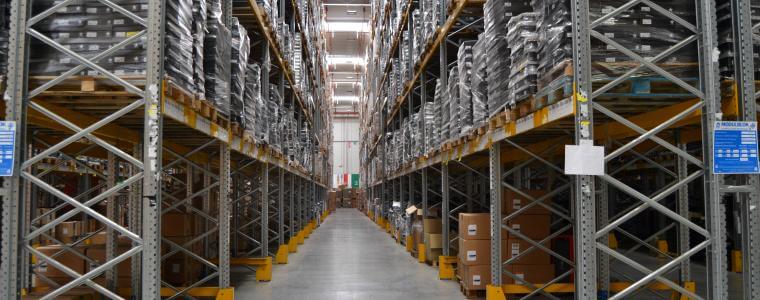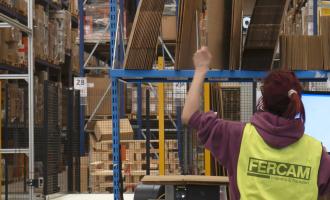
28 January 2021 - by: Eleonora Castagna
3 drivers of change that will impact the future of supply chains
What can we expect for the logistics tomorrow? What outcomes of the emergency experienced in 2020 will have significant repercussions? Which trends should we pay attention to? With Maurizio Vioni, Director of FERCAM’s Logistics Division we analyze 3 central elements and their consequences on the logistics dimension

In the past year, the global health emergency had a heavy impact on many companies, altering the traditional logic behind the management of supply chains and leading most consumers to change their purchasing habits. 2021 therefore begins with a new awareness and with the desire to reduce the risks associated with the interruption of business activities. But it also begins with new tools available, such as a level of digital acculturation increased by the speed of need, which now makes the technological resources available even more relevant and incisive, as well as a long list of lessons learned that will help to recognize potential pitfalls along the way.
It is important to emphasize that attention to economic, social, and environmental sustainability is once again confirmed as a primary and impactful trend. The sensitivity towards greener solutions in particular is a virtuous common denominator of initiatives and investments for an ever-increasing number of companies and organizations. The community goals that aim to build a zero-emission future appear more achievable day by day and continue to motivate new members to join the cause.
Shortening the supply chain and re-centralizing its functions in order to better control the variables is therefore what industry experts believe may be the most immediate consequence of post-pandemic awareness. In any case, it will be essential in the near future to further optimize the availability of supplies and take into consideration a pool of alternative interlocutors and to face new blocks or uncertainties without compromising production and distribution capacity.
"The future of the economy is in the hands of big data managers," continues Vioni. “Widespread appearances on social networks allow user profiling activities with an incredible level of precision. Knowing the attitudes, habits, and interests of potential consumers has never been easier. The possibility of collecting and cataloging massive masses of data will make it possible to anticipate the new needs and expectations of consumers. Those who have the skills to manage and analyze these data will have the advantage of guiding and not undergoing change”.
To cope with increasingly demanding requests for customization and ever faster delivery times, we will tend to shorten chains to speed up and improve efficiency. And as a result, more and more companies, including small and medium-sized ones, will delegate the management of their logistics activities to external experts, outsourcing inventory and warehouse management.
Of course, now that the suitable technologies have become accessible, it will be increasingly important to meet the need for constant visibility, transparency of all processes, so as to be able to provide a real-time response to changes and unforeseen events. A future awaits us in which agility of thought and action will be one of the most valuable professional skills, as it has proved essential to ensure continuity in the most difficult moments.
It is important to emphasize that attention to economic, social, and environmental sustainability is once again confirmed as a primary and impactful trend. The sensitivity towards greener solutions in particular is a virtuous common denominator of initiatives and investments for an ever-increasing number of companies and organizations. The community goals that aim to build a zero-emission future appear more achievable day by day and continue to motivate new members to join the cause.
1. The choice of decentralizing production activities could be widely questioned
The COVID-19 emergency has highlighted the limits and risks involved in the decentralization of production activities towards low-cost labor markets, such as the Far East. It therefore seems that a change of course could be envisaged with respect to what had been a characteristic trend of the era of globalization. Maurizio Vioni, Director of FERCAM’s Logistics Division comments: "many companies are rethinking this system and are evaluating the possibility of differentiating risk by returning part of production to areas geographically closer to the product uptake markets".Shortening the supply chain and re-centralizing its functions in order to better control the variables is therefore what industry experts believe may be the most immediate consequence of post-pandemic awareness. In any case, it will be essential in the near future to further optimize the availability of supplies and take into consideration a pool of alternative interlocutors and to face new blocks or uncertainties without compromising production and distribution capacity.
2. The ever faster digital transformation results in new operating models
Another strong impact of the period just ended has manifested itself on consumption patterns and consequently on the sales channels. The propensity to purchase online has also involved users who are not strictly digital natives, accelerating a process that is already undergoing strong development. Today, it is logical to hypothesize a permanent enlargement of the number of digital consumers, whose choices and interests, which are perfectly traceable, therefore become an extremely important source of information."The future of the economy is in the hands of big data managers," continues Vioni. “Widespread appearances on social networks allow user profiling activities with an incredible level of precision. Knowing the attitudes, habits, and interests of potential consumers has never been easier. The possibility of collecting and cataloging massive masses of data will make it possible to anticipate the new needs and expectations of consumers. Those who have the skills to manage and analyze these data will have the advantage of guiding and not undergoing change”.
To cope with increasingly demanding requests for customization and ever faster delivery times, we will tend to shorten chains to speed up and improve efficiency. And as a result, more and more companies, including small and medium-sized ones, will delegate the management of their logistics activities to external experts, outsourcing inventory and warehouse management.
3. The key words for facing the future continue to be flexibility and resilience
2020 has taught us that no matter how much we can analyze and plan in great detail, it will never be possible to exclude the possibility of having to suddenly change course. The superpower of the future will therefore continue to be the ability to react quickly to events and to changing conditions, having rooted business on a flexible design, interchangeable elements and resilient resources. Regarding supply chain planning, this must translate into a more important investment in monitoring, simulation and planning of alternative scenarios, in order to prepare your chain to face any change. There is a lot of talk about "elastic logistics", or the possibility for companies to expand or restrict their logistics activities according to changes in demand or other circumstances.Of course, now that the suitable technologies have become accessible, it will be increasingly important to meet the need for constant visibility, transparency of all processes, so as to be able to provide a real-time response to changes and unforeseen events. A future awaits us in which agility of thought and action will be one of the most valuable professional skills, as it has proved essential to ensure continuity in the most difficult moments.
Share


 Language
Language

























